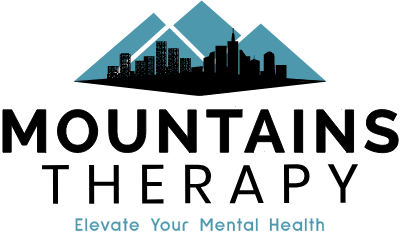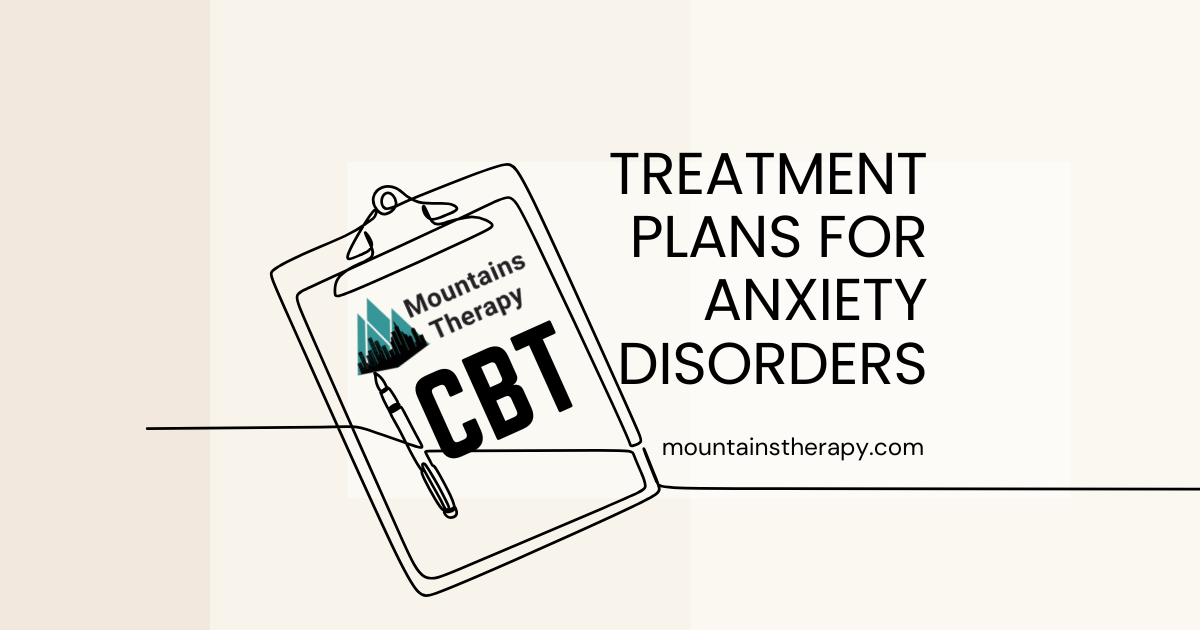Treatment Plans for Anxiety Disorders: How to Manage Anxiety WITH CBT
Learn more about Anxiety Therapy and CBT Therapy.
In This Blog, You’ll Learn:
- The different types of anxiety disorders.
- Common symptoms associated with each type.
- Cognitive Behavioral Therapy (CBT) strategies tailored to each form of anxiety.
Anxiety disorders are among the most common mental health concerns, affecting millions of people worldwide. Understanding the nuances of each type can make a significant difference in creating an effective treatment plan. Let’s break down the types of anxiety disorders, their symptoms, and how Cognitive Behavioral Therapy (CBT) can be used to manage them.
Types of Anxiety Disorders and Their Symptoms
Generalized Anxiety Disorder (GAD)
- Symptoms: Persistent and excessive worry about various aspects of daily life, restlessness, fatigue, difficulty concentrating, and muscle tension.
Social Anxiety Disorder (SAD)
- Symptoms: Intense fear of social situations, avoiding interactions, excessive self-consciousness, and physical symptoms like blushing or sweating.
Panic Disorder
- Symptoms: Recurrent panic attacks, which include rapid heartbeat, shortness of breath, dizziness, and a fear of losing control or dying.
Phobias
- Symptoms: Irrational and intense fear of specific objects, situations, or activities, leading to avoidance behaviors.
Obsessive-Compulsive Disorder (OCD)
- Symptoms: Unwanted repetitive thoughts (obsessions) and/or actions (compulsions) performed to reduce distress.
Post-Traumatic Stress Disorder (PTSD)
- Symptoms: Flashbacks, nightmares, severe anxiety, and uncontrollable thoughts about a traumatic event.
Health Anxiety
- Symptoms: Excessive worry about having a serious illness despite medical reassurance, frequent body checking, and researching symptoms.
Cognitive Behavioral Therapy for Anxiety Disorder and Anxiety Therapy Goals
CBT is a structured, evidence-based approach to managing anxiety disorders. Here’s how Cognitive Behavioral Therapy (CBT) Helps Anxiety Disorders:
Generalized Anxiety Disorder (GAD)
CBT Techniques:
- Cognitive Restructuring: Identifying and challenging irrational thoughts.
- Anxiety Therapy Goal: Reduce overthinking and develop realistic thinking patterns.
- Relaxation Training: Using deep breathing and progressive muscle relaxation to reduce physical tension.
- Anxiety Therapy Goal: Manage physical symptoms of anxiety effectively.
- Behavioral Experiments: Testing the accuracy of anxious predictions by engaging in activities that cause worry.
- Anxiety Therapy Goal: Build confidence in managing anxiety-inducing situations.
Social Anxiety Disorder (SAD)
CBT Techniques:
- Exposure Therapy: Gradual exposure to feared social situations.
- Anxiety Therapy Goal: Increase comfort and reduce avoidance in social settings.
- Role-Playing: Practicing social interactions in a safe environment.
- Anxiety Therapy Goal: Enhance social communication and confidence.
- Mindfulness Training: Staying present and reducing self-consciousness.
- Anxiety Therapy Goal: Minimize overthinking during social interactions.
Panic Disorder
CBT Techniques:
- Interoceptive Exposure: Gradual exposure to panic symptoms to reduce fear of them.
- Anxiety Therapy Goal: Decrease fear of physical symptoms and regain control.
- Psychoeducation: Understanding the fight-or-flight response.
- Anxiety Therapy Goal: Develop a clear understanding of panic triggers.
- Breathing Retraining: Learning to manage hyperventilation.
- Anxiety Therapy Goal: Improve breathing techniques to prevent panic attacks.
Phobias
- CBT Techniques:
- Systematic Desensitization: Gradual exposure to the feared object or situation.
- Anxiety Therapy Goal: Overcome specific fears through gradual exposure.
- Cognitive Restructuring: Reframing catastrophic beliefs about the feared stimulus.
- Anxiety Therapy Goal: Shift perception of feared objects or situations.
Obsessive-Compulsive Disorder (OCD)
CBT Techniques:
- Exposure and Response Prevention (ERP): Gradual exposure to obsessions without performing compulsions.
- Anxiety Therapy Goal: Reduce reliance on compulsive behaviors for relief.
- Cognitive Restructuring: Challenging the necessity of compulsive behaviors.
- Anxiety Therapy Goal: Foster healthier responses to obsessive thoughts.
Post-Traumatic Stress Disorder (PTSD)
CBT Techniques:
- Trauma-Focused CBT: Processing traumatic memories safely.
- Anxiety Therapy Goal: Reduce emotional distress linked to trauma.
- Stress Inoculation Training: Building resilience against anxiety triggers.
- Anxiety Therapy Goal: Enhance coping strategies for trauma-related triggers.
- Relaxation Strategies: Managing physiological arousal linked to trauma.
- Anxiety Therapy Goal: Decrease physical symptoms of PTSD.
Health Anxiety
CBT Techniques:
- Behavioral Experiments: Testing fears about health outcomes.
- Anxiety Therapy Goal: Alleviate health-related worries through evidence-based testing.
- Exposure Therapy: Facing situations that trigger health-related worries.
- Anxiety Therapy Goal: Reduce avoidance behaviors related to health anxiety.Anxiety Therapy Goal: Reduce avoidance behaviors related to health anxiety.
- Mindfulness Training: Reducing compulsive body checking and reassurance-seeking.
- Anxiety Therapy Goal: Cultivate a balanced approach to health concerns.
Developing a Personalized Treatment Plan for Anxiety Disorder
At Mountains Therapy NJ, we believe that each individual’s experience with anxiety is unique. Managing anxiety is a journey, but with the right tools and support, it’s possible to regain control and live a fulfilling life. If you want to find therapy for anxiety near me, you're at the right place! If you’re ready to take the first step, reach out to Mountains Therapy NJ for guidance and support. A personalized treatment plan may include:
- Initial Assessment: Understanding the nature and severity of your anxiety.
- Goal Setting: Identifying specific and measurable treatment for your anxiety therapy goals.
- Therapeutic Interventions: Incorporating CBT techniques tailored to your needs.
- Homework Assignments: Practicing skills between sessions to enhance progress.
- Ongoing Support: Regular check-ins to assess progress and adjust the treatment plan as needed.














